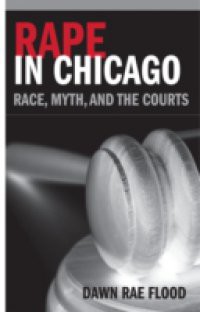Spanning a period of four tumultuous decades from the mid-1930s through the mid-1970s, this study reassesses the ways in which Chicagoans negotiated the extraordinary challenges of rape, as either victims or accused perpetrators. Drawing on extensive trial testimony, government reports, and media coverage, Dawn Rae Flood examines how individual men and women, particularly African Americans, understood and challenged rape myths and claimed their right to be protected as American citizens--protected by the State against violence, and protected from the State's prejudicial investigations and interrogations. _x000B__x000B_During the crises of the Great Depression and World War II, already-taboo problems such as sexual violence were further downplayed in favor of dealing with national issues. For cases that did go forward to conviction, trial narratives focused on protecting the female victim, protection that even extended to African American women. Amid the social reform of the 1960s and 1970s, prosecutors added more corroborative evidence to victims' claims, thereby assuming less faith in their testimonies and allowing defense attorneys and judges to interrogate women's sexual histories. The 1970s intensified the corroborative elements of rape trials, even as a vocal feminist movement sought to improve the treatment of rape victims both inside and outside courtrooms. Flood shows how defense strategies, evolving in concert with changes in the broader cultural and legal environment, challenged assumptions about black criminality while continuing to deploy racist and sexist stereotypes against the victims. _x000B__x000B_Thoughtfully combining legal studies, medical history, and personal accounts, Flood pays special attention to how medical evidence was considered in rape cases and how victim-patients were treated by hospital personnel. She also analyzes medical testimony in modern rape trials, tracing the evolution of contemporary "rape kit" procedures as shaped by legal requirements, trial strategies, feminist reform efforts, and women's experiences.

